

Speak with SCS Engineers solid waste experts and SCS Engineers field services professionals at Waste Expo, May 6-9, in the Las Vegas Convention Center. Come visit us at BOOTH 2907.
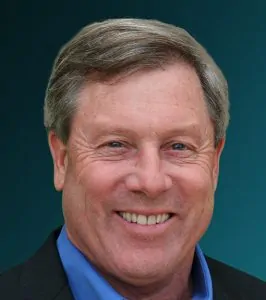
SCS Engineers expert, Tom Rappolt, will lead a compelling session titled “Private Equity, Friend or Foe? Battling Odor Class Action Lawsuits. Delve into the intricate dynamics of private equity involvement in waste management and the legal complexities surrounding odor-related class action lawsuits.
Session Name: Private Equity, Friend or Foe? Battling Odor Class Action Lawsuits
Session Date and Time: Tuesday, May 7, 2024 4:00 pm – 5:00 pm
Presenter and Panelist: Tom Rappolt
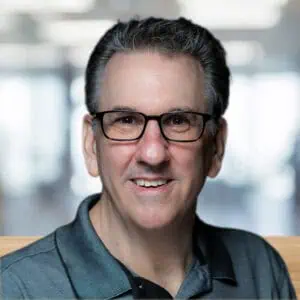
Unveiling the Soil Revolution: Navigating Permitting Challenges, Embracing Technologies, and Integrating AD in Composting. Join SCS Engineers, expert Pat Sullivan as he explores the forefront of composting innovation and the intricacies of regulatory hurdles.
Session Name: Composting: Permitting Challenges, Technologies, Integrating AD
Session Date and Time: Monday, May 06, 2024, 1:30 PM – 3:15 PM
Session Location: Room: W222-223
Presenter and Panelist: Pat Sullivan
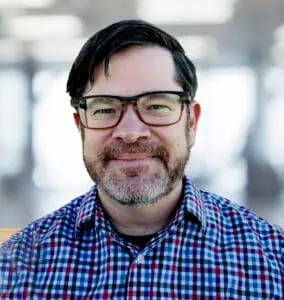
Dive into the realm of organic waste management with Jeff Phillips from SCS Engineers as he sheds light on ‘Stakeholder Strategic Planning for Organics Management in Iowa.’
Session Name: Stakeholder Strategic Planning for Organics Management in Iowa
Session Date and Time: Tuesday, May 7, 2024
Session Location: Track 2, Room: W223, 8:00 – 9:30 am
Presenter and Panelist: Jeff Phillips
At Waste Expo, you can connect with 13,000 of your peers and over 600 exhibitors. This is one event that pays dividends all year long. Preview the latest vehicles, tune in to the latest technology, and learn the latest curriculum to improve the environment. For over 50 years, WasteExpo has provided an outstanding event experience in the solid waste, recycling and organics industry.
Numerous summits will be co-located with Waste Expo, including the Food Recovery Forum & Organics Recycling program, where you can interact with SCS Engineers Organics Management and Food Recovery experts. You can also speak to our experts at Sustainability Talks and several other exciting programs.
Click here for more conference details and registration information.
We hope to see you there!
Talk with SCS Engineers experts about your solid waste management needs at BOOTH 203 at SOAR 2024, SWANA’s premier technical conference that brings together industry professionals from all disciplines of the resource management community.
This year’s conference, “Technical Solutions for Resource Management” will take place April 15-18 at the Phoenix Convention Center.
Several SCS Engineers solid waste experts are presenting at this year’s conference, including:
 “We’re Running Out of Space! Now What?” featuring Central Business Unit Director Anastasia Welch
“We’re Running Out of Space! Now What?” featuring Central Business Unit Director Anastasia Welch “Regulatory Changes,” featuring Senior Project Advisor Alex Stege
“Regulatory Changes,” featuring Senior Project Advisor Alex Stege “Regional Approach to Food Recovery,” with Senior Vice President Michelle Leonard
“Regional Approach to Food Recovery,” with Senior Vice President Michelle Leonard “Innovations in Waste-to-Value Approaches,” featuring Vice President Stacey Demers
“Innovations in Waste-to-Value Approaches,” featuring Vice President Stacey Demers “Quantifying the Impact of Recycling Contamination on Desired Materials,”
“Quantifying the Impact of Recycling Contamination on Desired Materials,”SOAR brings together professionals and experts and offers technical education, networking events, and peer-to-peer learning. You’ll leave SOAR with actionable, fact-based solutions for all aspects of resource management to implement in your facilities. SOAR delivers practical solutions to solid waste’s most difficult challenges.
This technical conference connects experts and problem-solvers in industry-changing conversations about your most complex challenges.
Click for more conference details and registration information
We hope to see you there!
The U.S. Environmental Protection Agency released two new reports quantifying methane emissions from landfilled food waste and updating recommendations for managing wasted food. In a press release, EPA Administrator Michael S. Regan said, “These reports provide decision-makers with important data on the climate impacts of food waste through landfill methane emissions and highlight the urgent need to keep food out of landfills.”
The reports’ findings emphasize the importance of reducing the amount of this type of waste and managing its disposal in more environmentally friendly ways. Based on these findings, EPA is releasing an update to its Food Recovery Hierarchy to help decision-makers, such as state and local governments, understand the best options for managing the waste regarding environmental impacts.
The release of the new ranking – the Wasted Food Scale – marks the first update since the 1990s, reflecting more recent technological advances and changes in operational practices. EPA’s research confirms that preventing food from being wasted in the first place, or source reduction, is still the most environmentally beneficial approach. Evidence in these reports suggests that efforts should focus on ensuring less food is wasted to divert it from landfills, which will reduce environmental impacts.
The research announced on Thursday, October 19, represents the first time EPA has quantified methane emissions from landfilling. This work published modeled estimates of annual methane emissions released into the atmosphere from landfilled food waste, giving a cost of landfilling the waste in terms of the impact on climate change.
EPA analyzed to estimate annual methane emissions from landfilled this type of waste from 1990 to 2020 and found that while total emissions from municipal solid waste (MSW) landfills are decreasing, methane emissions from landfilled food waste are increasing. These estimates indicate that diverting edible and non-edible food from landfills effectively reduces methane emissions, a powerful greenhouse gas, from MSW landfills.
“From Field to Bin: The Environmental Impacts of U.S. Food Waste Management Pathways,” which examines the environmental impacts of disposing of food waste. This report synthesizes the latest science on the environmental impacts of how food waste is commonly managed in the U.S. This report completes the analysis that began in the 2021 companion report, “From Farm to Kitchen: The Environmental Impacts of U.S. Food Waste,” which analyzed the environmental footprint of food waste in the farm to the consumer supply chain.
“Quantifying Methane Emissions from Landfilled Food Waste” represents the first time the EPA has published modeled estimates of annual methane emissions released into the atmosphere from landfilled food waste. More food reaches MSW landfills than any other material, but its contribution to landfill methane emissions has not been previously quantified.
Hear from SCS Engineers experts at the Green California Schools & Higher Education Summit and Expo, October 17, in Pasadena. The summit will explore “California Continuing the March for Decarbonization.”
This year’s education program will conduct extensive outreach and surveying to identify what matters most to participants.
SCS experts are presenting, including:
This session will provide information on the types of food waste that is generated in schools, and the methods that schools can use to reduce the amount of wasted food and to recover and recycle food scraps. The information is based on experience at school districts and community colleges in California.
Be part of the community that leads the way in making California’s schools and higher education sector’s among the leaders driving the State’s decarbonization efforts. Hear from thought leaders and content experts in design and construction as well as experts in maintenance and operations from campuses across the state. Learn about the challenges and solutions as the State drives the transportation sector toward 100% renewables.
Click for more conference details and registration information. We hope to see you there!
Applying the Lessons Learned – 1383 Compliance to your composting and food recovery planning can help make your program more sustainable.
SCS Engineers developed an SB 1383 Roadmap, which we customized for each municipality. The Roadmap outlines the requirements of SB 1383 by topic and by the responsible party. The Roadmap helped municipalities to plan for SB 1383 compliance, including a schedule for implementation, monitoring, reporting, and enforcement. Because SB 1383 is not only the responsibility of the Solid Waste Department, the Roadmap outlines the responsibilities of other municipal departments, including Administration, Finance, Purchasing, Fleet, Parks, etc.
SB 1383 requires the completion of capacity studies for organic waste recycling and edible food recovery. The Organic Waste Recycling capacity planning includes collecting data on the amount of organic waste (in tons) that will be disposed of, the amounts in tons of existing organic waste recycling infrastructure, both within and outside the county, that is available, and the amount of new or expanded capacity that will be needed to process the organic waste identified as being disposed of.
For the edible food recovery capacity planning, the counties had to estimate the amount of edible food that would be disposed of by commercial edible food generators, the existing capacity for food recovery organizations available in the County, the proposed or expanded food recovery organization that will be used to recover the edible food generated, and the new or expanded capacity that is necessary to recover the edible food that is generated.
It is a challenge for municipalities to meet these requirements, but feasible and sustainable using the SB 1383 Roadmap. Learn more on Wednesday, January 25, 2023, at the USCC Compost 2023 conference. During Session D1, the California Track Regulatory Trends and Experience at 8:15 – 9:45 am, Srividhya Viswanathan and Michelle Leonard discuss the Lessons Learned – 1383 Compliance, much of which is applicable for many evolving programs nationwide.
Meet SCS Engineers and SCS Field Services professionals at BOOTH 1704 at WasteExpo 2023, May 1-4, in New Orleans.
WasteExpo is the place to be! The conference program is your professional development opportunity of the year! The education and training that you’ll receive is guaranteed to sharpen your skills to help you do your job better. WasteExpo’s conference program is unparalleled. 2023 Conference Tracks include:

Monday, May 1
8:00 AM – 9:15 AM
Room: 275, Session Number: MTECH1

Monday, May 01, 2023
8:30 AM – 9:45 AM
Room: 279, Session Number: MRECYC1

Monday, May 01, 2023
10:15 AM – 11:30 AM
Room: 279, Session Number: MRECYC2
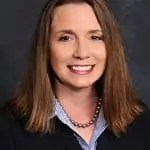
Tuesday, May 02, 2023
8:00 AM – 9:15 AM, Room: 289, Sustainability Track
Seizing an Opportunity: The Rise of MRF Investments with Bob Gardner, Sr. VP Solid Waste
Tuesday, May 02, 2023
12:00 PM – 1:15 PM
Room: 279, Session Number: TRECYC3

Wednesday, May 03, 2023
10:45 AM – 12:00 PM
Room: 275, Session Number: WTECH2
Click for more conference details and registration information
The Food DROP and RecycleSmart case studies in this EM article illustrate the successful collaboration between local governments and stakeholders in food recovery. In both cases, local government staff invested time to understand the barriers and benefits of different aspects of recovery. The resulting recovery programs provide local benefits by supporting the community and the collective benefit of reducing the amount of food waste sent to landfills in California.
As environmental professionals, we believe that positions us as key collaborators for these recovery programs across the country, whether helping businesses overcome the barriers and participate in food donation programs or to support the capacity expansion of recovery organizations and services. We encourage you to learn more about the food recovery organizations and services in your community and start a conversation about how to best support their work.
Start by reading the article, Collaboration Is the Key to Successful Edible Food Recovery, for advice from these SCS Engineers environmental professionals.
$2 million in cooperative agreements is available for local governments to host Community Compost and Food Waste Reduction (CCFWR) pilot projects. The cooperative agreements support projects that develop and test strategies for planning and implementing municipal compost plans and food waste reduction plans. They are part of USDA’s broader efforts to support urban agriculture.
USDA’s Office of Urban Agriculture and Innovative Production will accept applications on Grants.gov until 11:59 p.m. Eastern Time on July 16, 2021. Projects should span two years, with a start date of September 25, 2021, and a completion date of September 25, 2023.
Local governments may submit projects that:
NRCS will assist in conservation-related activities.
Priority will be given to projects that include economic benefits; provide compost to farmers; integrate other food waste strategies, including food recovery; and collaborate with multiple partners.
The deadline for applications is July 16, 2021.
Project Example: The Department of Sanitation of New York and nonprofit Big Reuse establishes food scrap drop-off locations while New York City Parks Department is diverting wood chips and leaves from landfill disposal to create compost. GreenThumb, Brooklyn Grange, Hellgate Farms, Gowanus Canal Conservancy, and other urban farms distribute the compost for food production in the boroughs of Queens and Brooklyn, diverting approximately 600,000 pounds of food scraps and green waste from landfills and providing 350 cubic yards of compost to food producers.
Get Started with SCS’s ASP Composting Pilot Program
• Low-cost opportunity to test ASP composting feasibility
• Ability to test different feedstock mixes
• Assess the quality of the finished compost
• Assess odor control and process control
• Test footprint is 5000 sqft or less on your site
Webinar
A pre-recorded webinar will provide an overview of the cooperative agreements’ purpose, project types, eligibility, and basic requirements for submitting an application. The webinar will be posted at farmers.gov/urban.
More Information
Questions about this cooperative agreement opportunity can be sent to .
The Office was established through the 2018 Farm Bill and is designed to be a USDA-wide effort. Representatives from agencies throughout USDA play a critical role in successfully servicing urban customers. Other grant and engagement opportunities are available in addition to the CCFWR agreements. More information is available at farmers.gov/urban.
Additional resources that may be of interest to urban agriculture entities include NIFA grants, FSA loans, and AMS grants to improve domestic and international opportunities for U.S. growers and producers.
California’s SB 1383, the Short-Lived Climate Pollutants Act, sets a statewide goal for reducing organic waste to landfills of 50 percent by 2020, and 75 percent by 2025. Included in SB 1383 is a goal to recover 20 percent of edible food waste for human consumption.
Meeting these requirements, particularly the recovery of edible food, is not as straightforward as it might seem. For example, it is difficult to accurately identify edible food from other waste once it’s in the waste stream.
“We can estimate the amount of edible food during waste characterizations, but we find working directly with businesses to identify the edible food they can make available and in what quantities is a more holistic approach,” said Tracie Bills, SMM Northern California Director. “We assist businesses with identifying edible food recovery partners with reputable community programs to distribute food to people in need.”
SCS Engineers partners with Loaves & Fishes Family Kitchen in San Jose to create a sustainable solution that could become a model for how municipalities can meet the 20-percent food recovery requirement.
Loaves & Fishes is a non-profit organization with roots going back 40 years. It’s grown from a simple soup kitchen to one of the leading providers of meals in Santa Clara and San Mateo Counties. The organization recently opened its new location in San Jose.
“Last year, we served more than 1 million meals, almost twice as many as just a couple of years ago,” said Mauricio Cordova, Loaves & Fishes’ COO. “With the help of local restaurants, grocery stores, and others, we’re able to use the food they can’t use to feed residents in need. In our new building, we expect to increase capacity to 10,000 meals per day.”
“Creating these partnerships isn’t part of our typical scope of work,” adds Bills. “But it’s important to go beyond simply identifying edible food. As we work with potential contributors and partners, we’re able to create a sustainable network that achieves a common goal.”
Says Cordova, “Through our A La Carte Food Recovery program, we can help companies divert perfectly safe and usable food away from composting and landfills, and re-distribute them in the form of meals to our most vulnerable neighbors. The all-around win is that people in dire need of food assistance – compounded by the impact of Covid-19 – can receive healthy, nutritious food, and companies lessen their food waste levels and greenhouse gas emissions.”
Loaves & Fishes has recovered more than 1 million pounds of edible groceries and reduced greenhouse gas emissions by 1,058 metric tons.
Learn more about sustainable materials management.
Los Angeles County Public Works – Environmental Programs Division is receiving a 2019 Food Recovery Challenge Award from the United States Environmental Protection Agency – USEPA this year. The national recognition is for the County’s substantial increase in food recovery and sustainable materials management. EPA’s data-driven awards are based on the information submitted in the Sustainable Materials Management – SMM, Data Management System, and reflect percent changes comparing an organization’s data to the previous year’s data.
LA County Public Works serves 88 cities and a population of more than 10 million people. The County is continually pursuing ways to make its communities more resilient by identifying new SMM actions to address greenhouse gases, waste generation, and pollution.
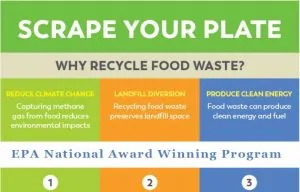
Public Works, in collaboration with the Sanitation Districts, made use of the existing anaerobic digestion infrastructure to convert 13,700 pounds of food waste to electricity. Worm composting bins divert an additional 1,200 pounds of food waste and another 340 pounds were source reduced by improved planning by kitchen staff. All of these diversion tactics reduce greenhouse gas emissions.
Getting employees and visitors to separate food waste properly is always a challenge. The project team, including SCS Engineers, significantly reduced cross-contamination by increasing on-site signage and peer-to-peer outreach. Signage, easily updated with user-friendly graphics makes a difference. The team further encourages new social behaviors with an educational video.
Despite the closing of recycling programs in other cities due to the pandemic, LA County Public Works is now expanding its program to recycle other types of organic waste, including food-soiled paper.
Preventing and reducing food waste has a tremendous impact and positive benefits for our nation. Food is a valuable resource. Efforts to reduce food waste and ensure excess food doesn’t go to waste are needed now more than ever. Participants in EPA’s Food Recovery Challenge in 2019 prevented or diverted over 815,000 tons of food from entering landfills or incinerators, saving participants up to $42.3 million in avoided landfill tipping fees. The EPA provides many helpful tools on its website.
Learn more about SCS Engineers’ Sustainable Materials Management and Composting programs at SCSEngineers.com.